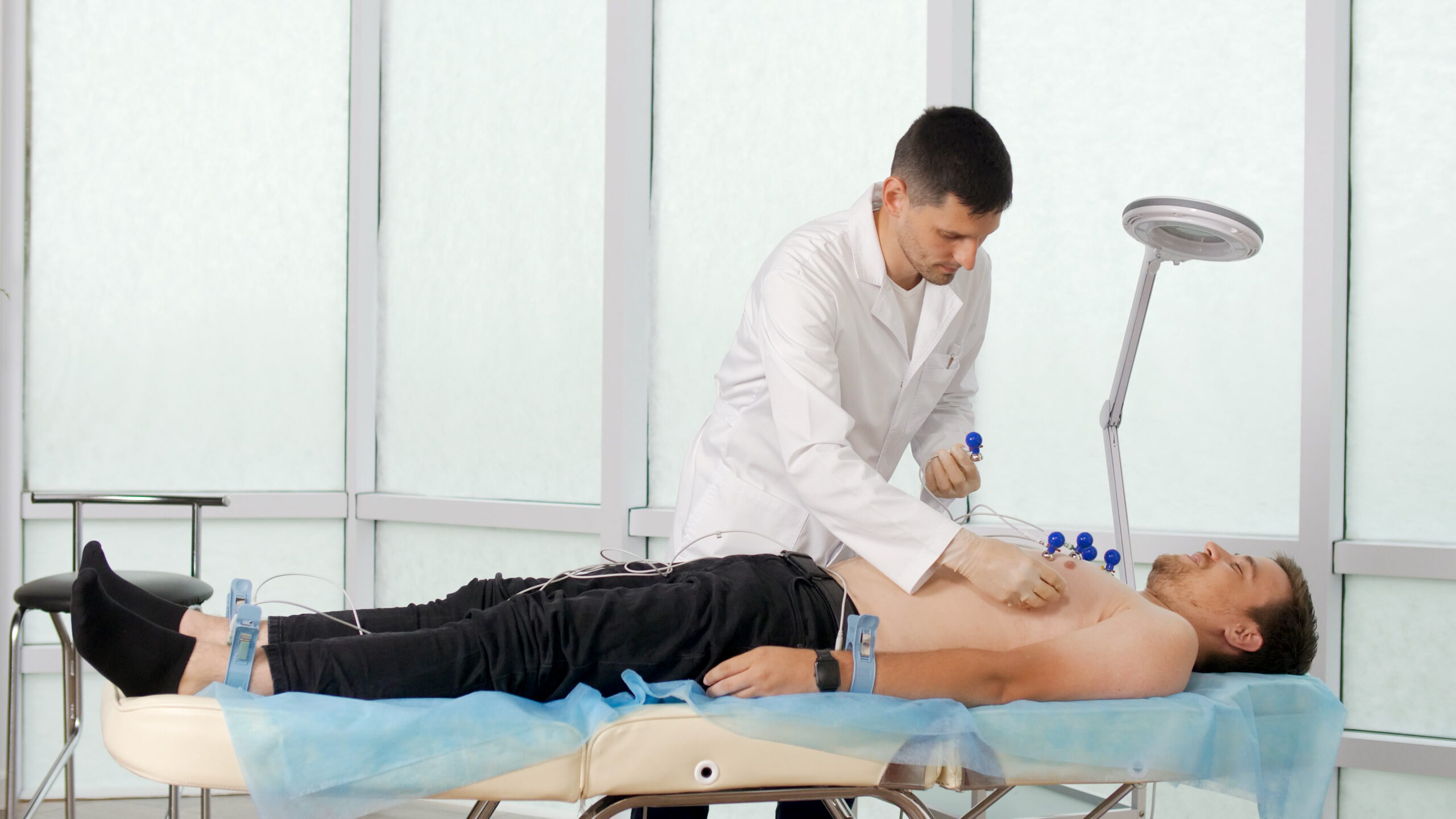A healthy heart is the cornerstone of sound health and wellbeing. Cardiac stress test to ensure that your cardiovascular system is performing optimally, it is important to schedule a stress test at an internal medicine clinic in Auburn Hills.
What is a Stress Test
A stress test, also known as a cardiac stress test, is a non-invasive procedure that provides an insight into the patient’s cardiovascular health. It is an office-based exam, that may be held at an out-patient clinic or a hospital to determine the heart’s response to physical exertion under a controlled environment.
Certain cardiovascular diseases manifest themselves when the heart is under stress. The test employs the use of exercise to put a strain on cardiac activity and helps diagnose various heart diseases. The physician then uses the test results to determine whether the patient needs emergency treatment protocols or not.
Why is a Stress Test Important?
The cardiac stress test plays a crucial role in the diagnosis of coronary artery disease (CAD). A limiting factor in its diagnosis is that the disease does not manifest its signs and symptoms at rest. Coronary arteries are responsible for the supply of oxygenated blood to the heart. There are times when these arteries are blocked by the deposition of plaque, a fatty substance consisting of cholesterol and other materials in the blood. However, when at rest, the coronary arteries supply adequate blood to the heart. Therefore, it is not until the cardiovascular system performs under physical stress, that the blood supply is hindered, and the symptoms of CAD appear.
In addition to the determination of coronary artery disease, the stress test also aims to,
- Check whether the patient is at risk of myocardial infarction, or other heart diseases
- Determine the exercise threshold that the cardiovascular system can bear
- Diagnose the existence of arrhythmia
- Determine the efficacy of ongoing treatment.
Furthermore, it also helps in the diagnosis or monitoring of:
- Cardiomyopathy
- Congenital heart defects
- Heart failure
- Heart valve failure
- Pericarditis
When is a Stress Test Indicated?
Your physician may recommend you a cardiac stress test if you show symptoms associated to,
- Angina
- Arrhythmia (Irregular heartbeat)
- Dyspnea (shortness of breath)
- Tachycardia (rapid heartbeat)
In addition, the test is also a vital choice for people who are:
- Looking forward to starting an exercise routine
- At the risk of heart disease due to their family history or current lifestyle practices
- Suffering from underlying comorbidities such as diabetes
- Scheduled for a surgery not related to the heart but need assessment for any potential complication.
- Undergoing certain medicinal treatment, the physicians intend to analyze its progress
- Working in high-risk occupations such as pilots and athletes.
How Should You Prepare For a Stress Test?
Just like any physical examination, a stress test requires adequate preparation from the patient’s age. Following are the protocols one must follow before appearing for the test.
- Wear comfortable and sturdy shoes to perform the exercise without any difficulty
- Do not eat anything for a few hours before the test
- Avoid caffeinated drinks, smoking, tobacco, and OTC pills for 24 hours before the test
- Avoid prescription medication on the day of the test. However, in the case of beta-blockers, ask your doctor about its dosing for the day
- If you use asthma inhalers, the physician may allow you to bring them to the test.
- For diabetic patients, it is important to discuss the meal and medication schedule with the physician, prior to the test.
What to Expect During a Cardiac Stress Test?
There are three approaches to conducting the test, all of which differ in terms of the technique used to produce the results. In all three types, you will be require to perform physical exertion through exercise to produce stress on the heart.
Exercise Stress Test
The test aims to record the heart rate and its rhythm. The procedure involves the placement of electrodes on various locations on the body and then attaching them to the (EKG) electrocardiogram machine. You are then ask to run on a treadmill, increase the speed gradually until you reach the target heart rate set by the doctor.
Once you reach the target, the physician and their team will record,
- The heart rate
- The strength and the frequency of the electrical impulse that passes through the heart
However, you might be ask to stop sooner if you experience chest pain, shortness of breath, or fatigue.
Nuclear Imaging Stress Test
Unlike the exercise stress test, this type involves the use of radioactive dye to monitor the blood flow through the heart at rest and during exercise. The blood flow during rest and physical exertion is examine with the help of either SPECT (single-photon emission computed tomography) or PET (positron-electron tomography) in terms of images that track the flow.
First, the dye is inject into IV and then the physicians make SPECT or PET scan images of the heart at rest. Then after being wired to the EKG machine, you’ll be ask to run on a treadmill or other relate exercise machine. When you are at the highest speed, and your heart is supposedly working the hardest, then the same dye will be inject IV, and after 15-40 minutes, scan images will be made to assess the blood flow. Comparing the blood flow during the periods helps to assess damage to the heart or the blood vessels.
Stress Echocardiogram
The procedure for a stress echocardiogram is the same as the previous two, but here functioning of the heart is monitor by ultrasound scan. Your physician will use an ultrasound device to access the moving images of the heart before and after the exertion period, to see how well the heart is pumping blood through the body. This test is usually conduct to monitor the narrowing of the coronary arteries.
What If Someone Cannot Perform Exercise?
Some patients suffer from arthritis or other diseases that limit their mobility. In such cases, medication (such as Dopamine) is administer into IV that produces effects similar to exercise on the heart.
What To Expect After a Stress Test?
After the stress test, the physician will monitor your heart rate, blood pressure, and EKG for 10-15 minutes, after which you’ll be allow to go home. In the case of a nuclear imagine stress test, the physician may recommend avoiding meals for a certain period of time.
Stress Test Results and Follow-up
The physician assesses the results in light of the causes that lead to the recommendation of the test. For instance,
- If you were looking forward to starting exercise or were schedule for surgery, normal test reports will be your go-ahead
- If you were experiencing chest pain or related symptoms, it might be due to anxiety or other underlying medical condition.
However, if the reports are unsatisfactory, it depicts the onset of cardiovascular disease. Therefore, the physician will then schedule tests for further diagnosis, along with certain medications and lifestyle changes.
Risk Factors or Contraindications For The Test
Despite being a valuable assessment approach to prevent the onset of CAD, some conditions contraindicate the test, such as,
- Aortic dissection or stenosis
- Inflammation of epicardium, myocardium, and endocardium
- Recent onset of heart attack
- Ongoing angina attack
It is important to keep in mind that a complicate procedure like the cardiac stress test services should only be conduct by trained professionals. Hence, we want to emphasize that you do your research on the clinic you are planning on visit before booking an appointment.




